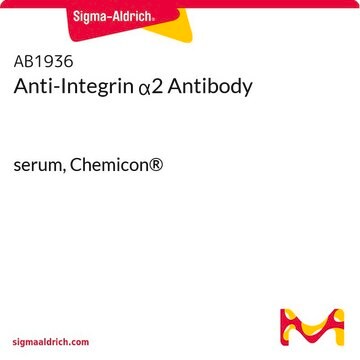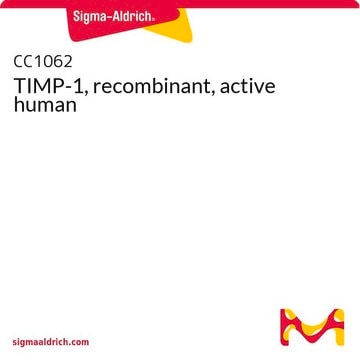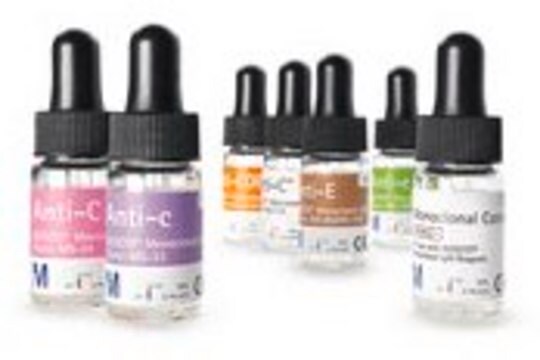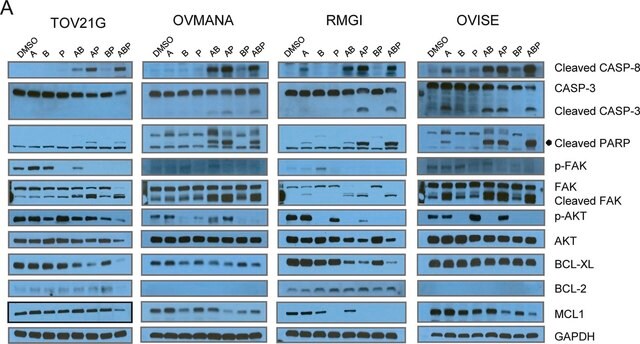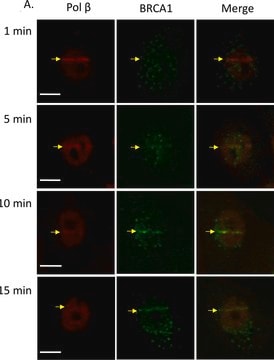CBL1345
Anti-Integrin α2 Antibody, clone HMα2
clone HMalpha2, Chemicon®, from hamster(Armenian)
Szinonimák:
CD49b
About This Item
IF
IHC
IP
immunofluorescence: suitable
immunohistochemistry: suitable
immunoprecipitation (IP): suitable
Javasolt termékek
biológiai forrás
hamster (Armenian)
Minőségi szint
antitest forma
affinity isolated antibody
antitest terméktípus
primary antibodies
klón
HMalpha2, monoclonal
faj reaktivitás
mouse
gyártó/kereskedő neve
Chemicon®
technika/technikák
flow cytometry: suitable
immunofluorescence: suitable
immunohistochemistry: suitable
immunoprecipitation (IP): suitable
izotípus
IgG
NCBI elérési szám
UniProt elérési szám
kiszállítva
wet ice
célzott transzláció utáni módosítás
unmodified
Géninformáció
human ... ITGA2(3673)
Related Categories
Általános leírás
Egyediség
Alkalmazás
Immunoprecipitation
Immunofluorescence
Immunohistochemistry
Optimal working dilutions must be determined by the end user.
Cell Structure
Integrins
Fizikai forma
Tárolás és stabilitás
Egyéb megjegyzések
Jogi információk
Jogi nyilatkozat
Nem találja a megfelelő terméket?
Próbálja ki a Termékválasztó eszköz. eszközt
Tárolási osztály kódja
12 - Non Combustible Liquids
WGK
WGK 2
Lobbanási pont (F)
Not applicable
Lobbanási pont (C)
Not applicable
Analitikai tanúsítványok (COA)
Analitikai tanúsítványok (COA) keresése a termék sarzs-/tételszámának megadásával. A sarzs- és tételszámok a termék címkéjén találhatók, a „Lot” vagy „Batch” szavak után.
Már rendelkezik ezzel a termékkel?
Az Ön által nemrégiben megvásárolt termékekre vonatkozó dokumentumokat a Dokumentumtárban találja.
Tudóscsoportunk valamennyi kutatási területen rendelkezik tapasztalattal, beleértve az élettudományt, az anyagtudományt, a kémiai szintézist, a kromatográfiát, az analitikát és még sok más területet.
Lépjen kapcsolatba a szaktanácsadással